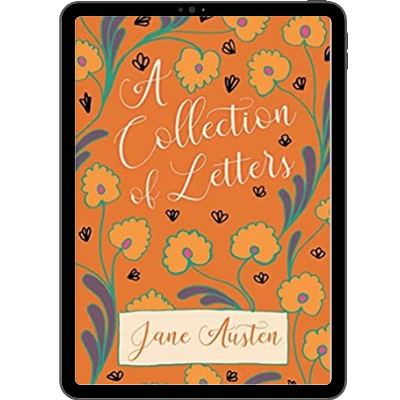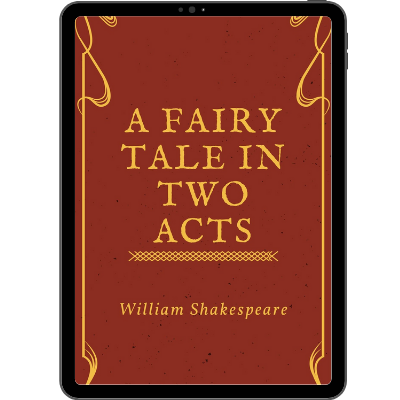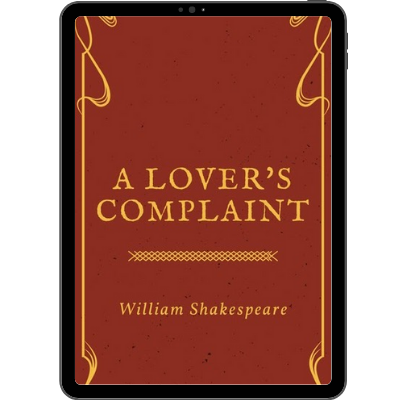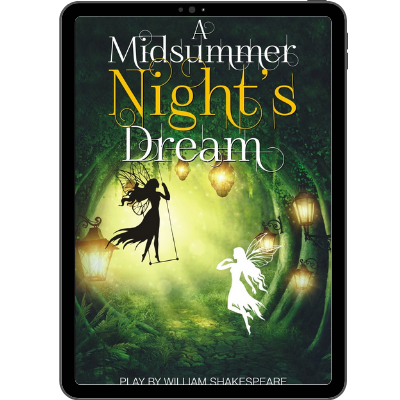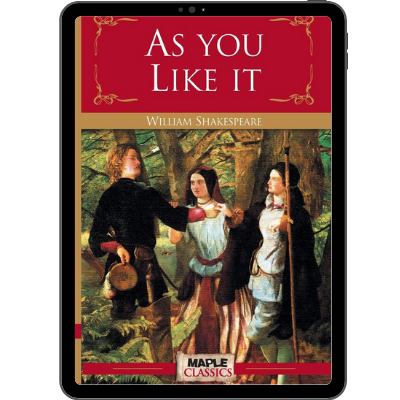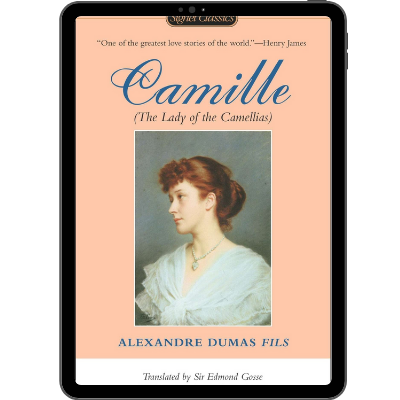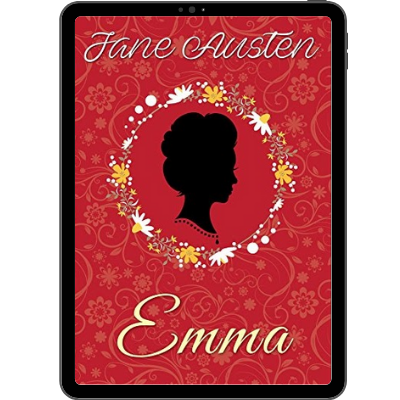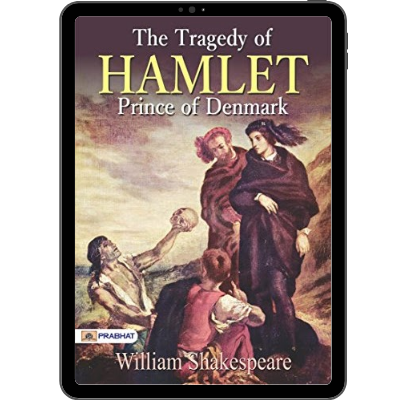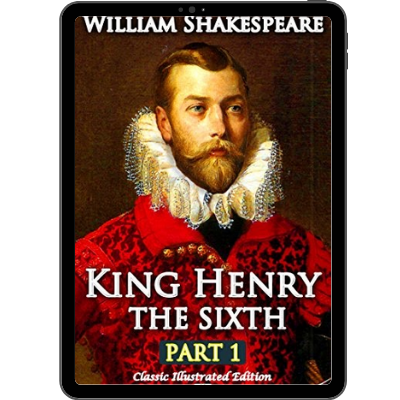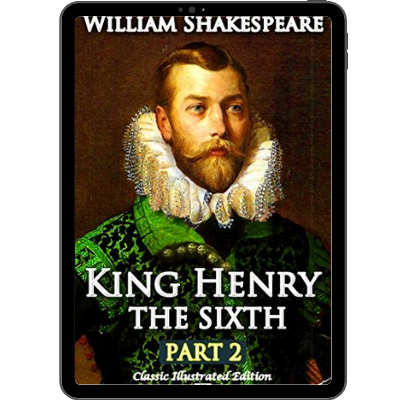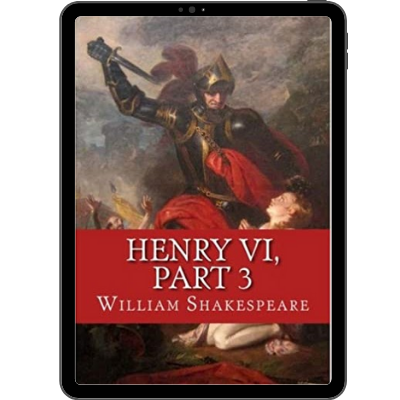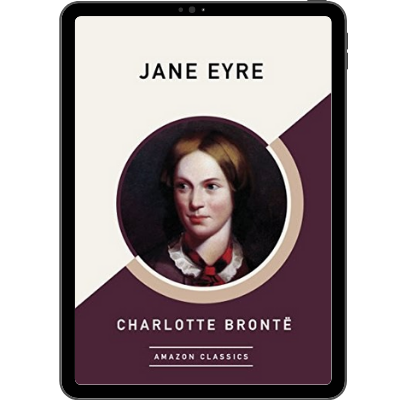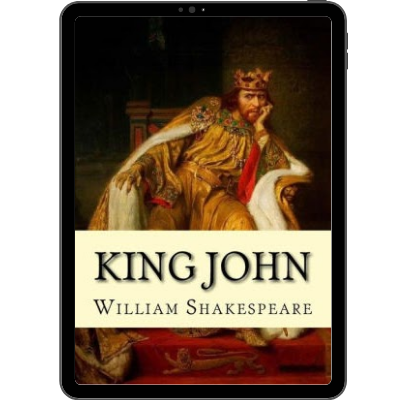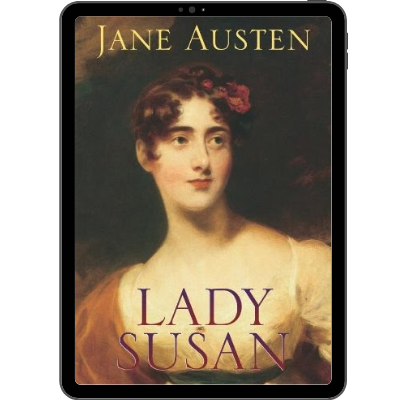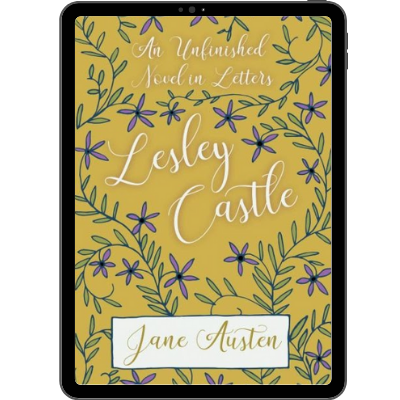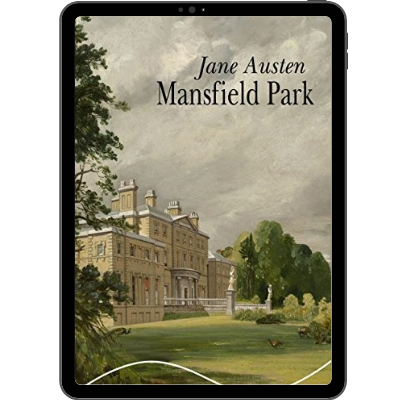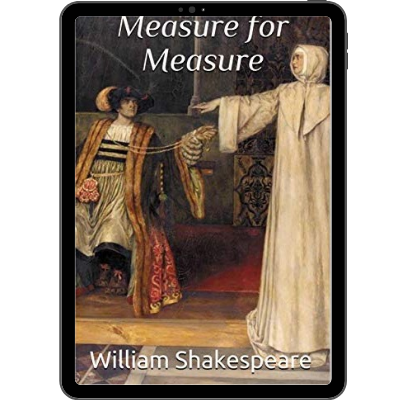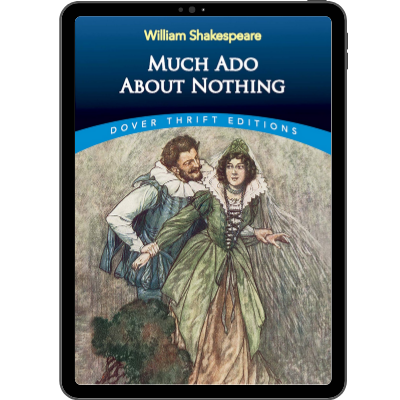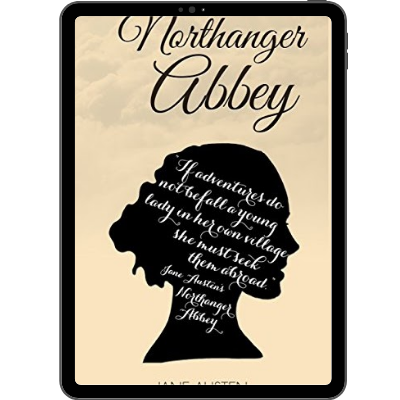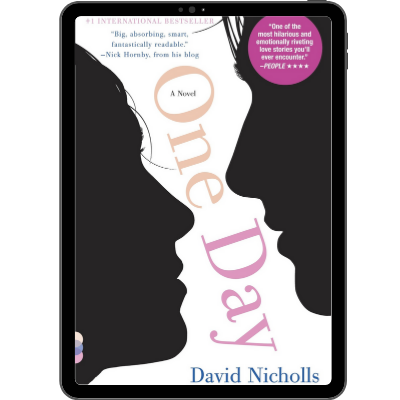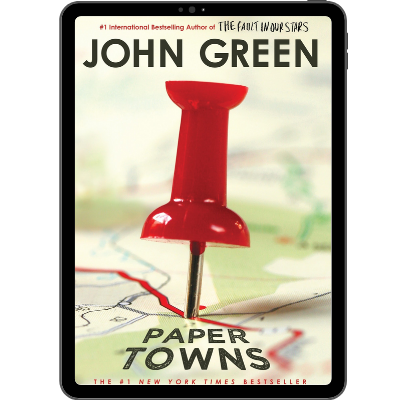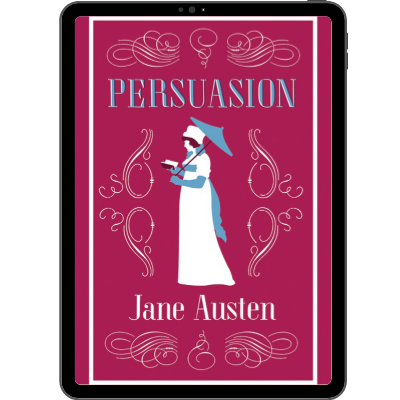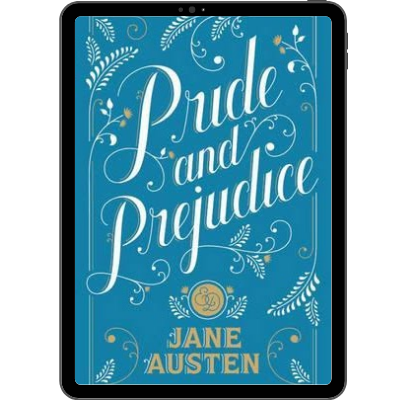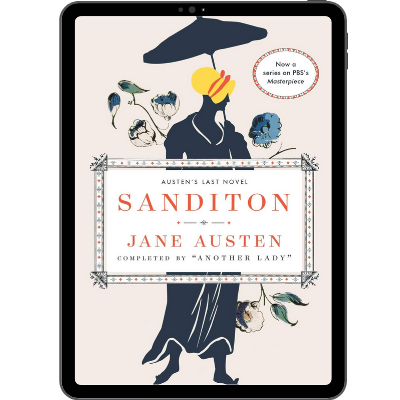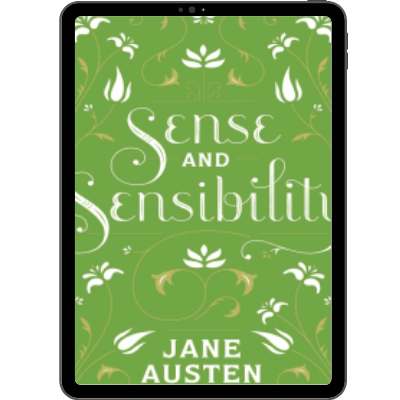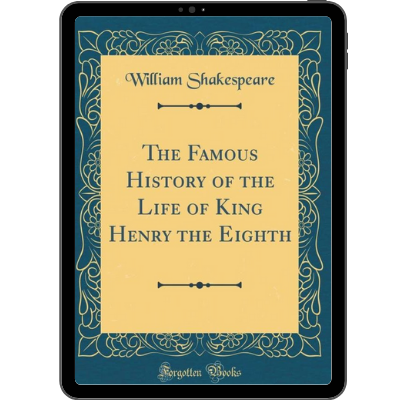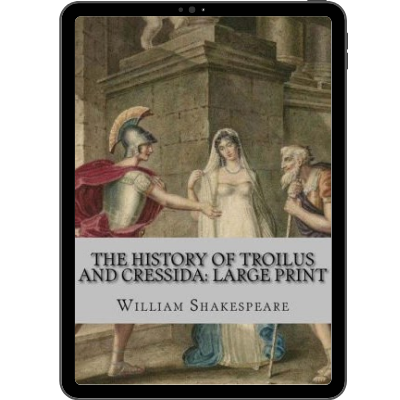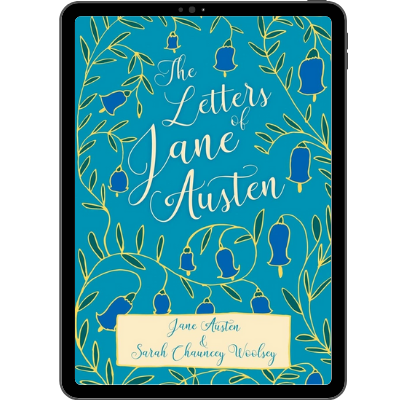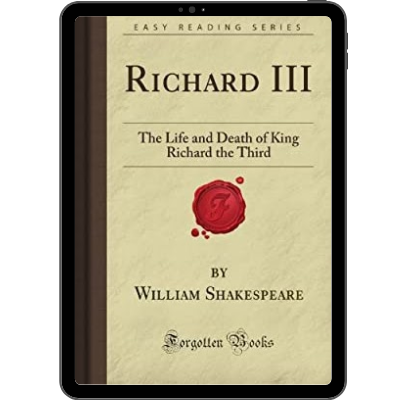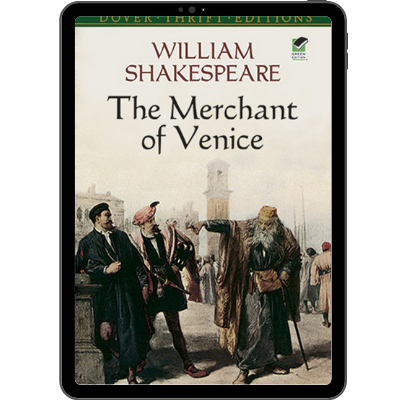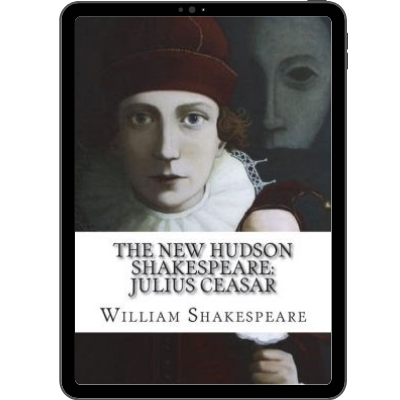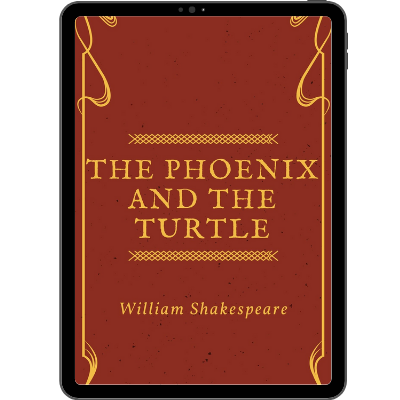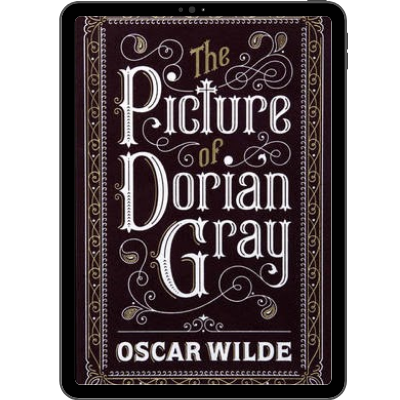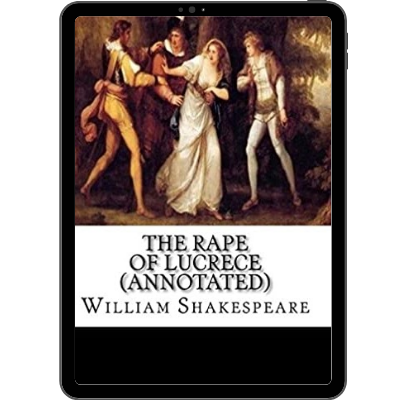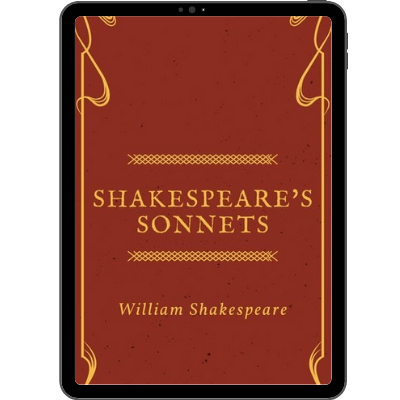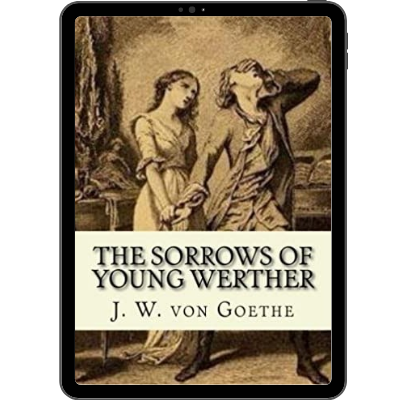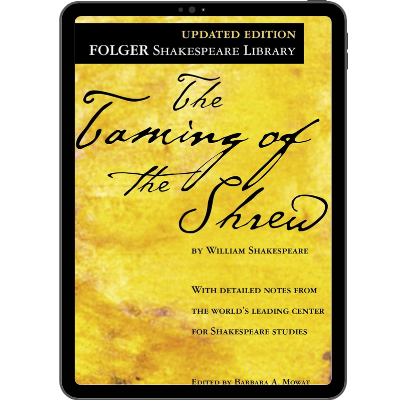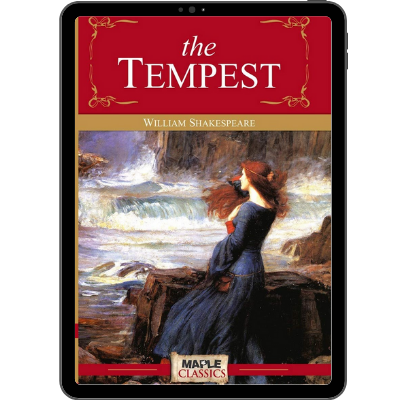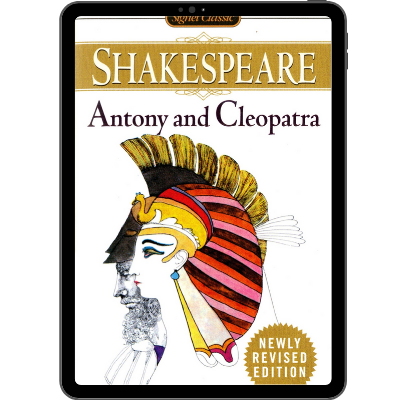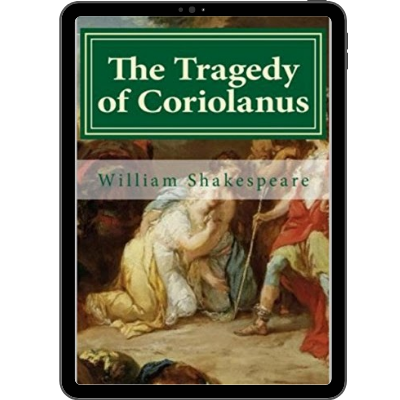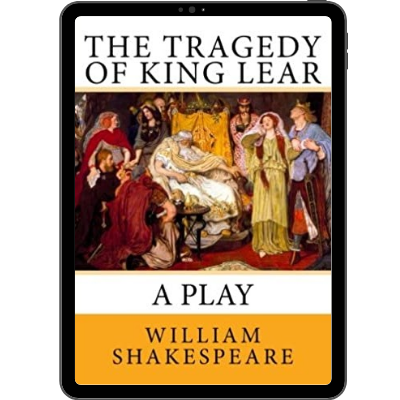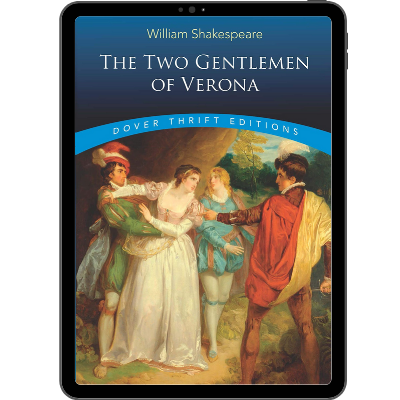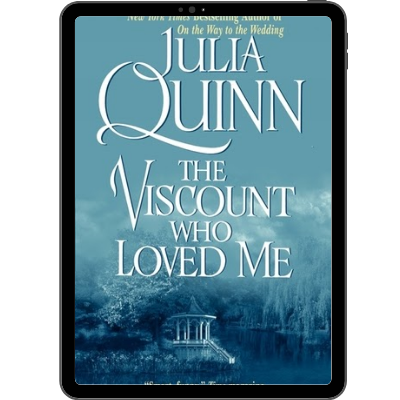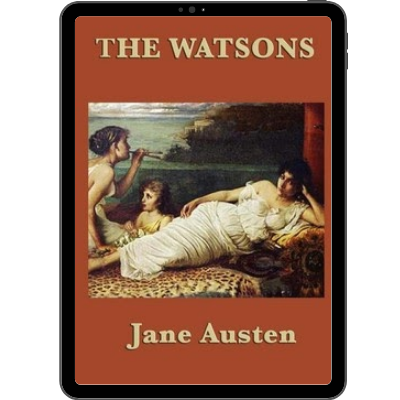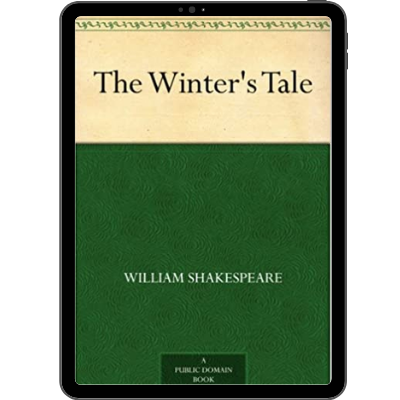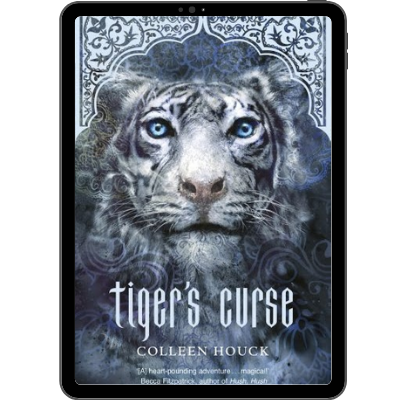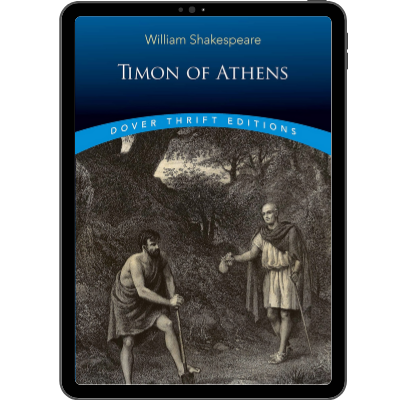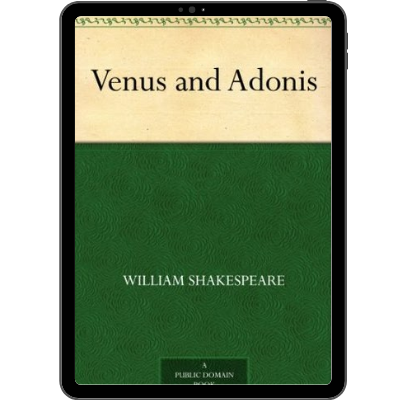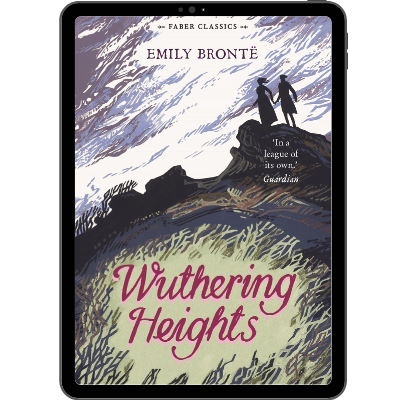Romance
Nineteen Eighty-Four: A Novel, often published as 1984, is a dystopian novel by English novelist George Orwell. It was published on 8 June 1949 by Secker & Warburg as Orwell's ninth and final book completed in his lifetime. The story was mostly written at Barnhill, a farmhouse on the Scottish island of Jura, at times while Orwell suffered from severe tuberculosis. Thematically, Nineteen Eighty-Four centres on the consequences of government over-reach, totalitarianism, mass surveillance, and repressive regimentation of all persons and behaviours within society.
A wonderful little collection of short stories told in the form of fictional letters by famous English author Jane Austen. Although written when she was just 14 years old for the enjoyment of family and friends, her witty dialogue and characteristic sense of humour are very much there. “A Collection of Letters” is one of Austen's earliest works (it includes her original spelling quirks) and is not to be missed by those who have read and enjoyed her works
A captivating, beautifully illustrated, one-of-a-kind color compendium of the flowers, fruits, herbs, trees, seeds, and grasses cited in the works of the world’s greatest playwright, William Shakespeare, accompanied by their companion quotes from all of his plays and poems. With a foreword by Dame Helen Mirren—the first foreword she has ever contributed.In this striking compilation, Shakespeare historian Gerit Quealy and respected Japanese artist Sumié Hasegawa combine their knowledge and skill in this first and only book that examines every plant that appears in the works of Shakespeare.
"A Lover's Complaint" tells the story of a young women lamenting her love for a man who once charmed and abandoned her. As she weeps at the edge of a river, an old man approaches, compelling her to recount her tale of sorrow. It was published as a conclusion to the original edition of "Shakespeare's Sonnets", in 1609. Shakespeare's sonnets beautifully explore the themes of love and beauty, time and mortality. William Shakespeare (1564 - 1616) was an English playwright, poet, and actor. He is considered to be the greatest writer in the English language and is celebrated as the world's most famous dramatist.
A Midsummer Night's Dream is a comedy play by William Shakespeare, believed to have been written between 1590 and 1596. It portrays the events surrounding the marriage of the Duke of Athens, Theseus, and Hippolyta. These include the adventures of four young Athenian lovers and a group of six amateur actors (mechanical), who are controlled and manipulated by the fairies who inhabit the forest in which most of the play is set. The play is one of Shakespeare's most popular works for the stage and is widely performed across the world.
After You by Jojo Moyes is the second book in her series, Me Before You . This is the story of Louisa Clark and her life AFTER Will Traynor. It is refreshingly nowhere near as heartbreaking as as it's predecessor, Me Before You, and picks up after Lou's time in Paris AFTER Switzerland.Louisa Clark is no longer just an ordinary girl living an ordinary life. After the transformative six months spent with Will Traynor, she is struggling without him. When an extraordinary accident forces Lou to return home to her family, she can't help but feel she's right back where she started.
Anna can't wait for her senior year in Atlanta, where she has a good job, a loyal best friend, and a crush on the verge of becoming more. So she's not too thrilled when her father unexpectedly ships her off to boarding school in Paris - until she meets Etienne St. Clair, the perfect boy. The only problem? He's taken, and Anna might be, too, if anything comes of her crush back home. Will a year of romantic near-misses end in the French kiss Anna awaits?
A complex novel in eight parts, with more than a dozen major characters, it is spread over more than 800 pages (depending on the translation and publisher), typically contained in two volumes. It deals with themes of betrayal, faith, family, marriage, Imperial Russian society, desire, and rural vs. city life. The plot centers on an extramarital affair between Anna and dashing cavalry officer Count Alexei Kirillovich Vronsky that scandalizes the social circles of Saint Petersburg and forces the young lovers to flee to Italy in a search for happiness. Returning to Russia, their lives further unravel.
William Shakespeare's exuberant comedy As You Like It is his playful take on the Renaissance tradition of pastoral romance, edited by H.J. Oliver with an introduction by Katherine Duncan-Jones. 'All the world's a stage, And all the men and women merely players' When Rosalind is banished by her uncle Duke Frederick, who has usurped her father's throne, she flees to the forest of Arden where her exiled father holds court. There, dressed as a boy to avoid discovery, she encounters the man she loves - Orlando, similarly forced into exile by his older brother Oliver - and resolves to remain in disguise to test his feelings or her. A gloriously sunny comedy, As You Like It is an exuberant combination of concealed identities and verbal jousting, reconciliations and multiple weddings.
"A tender story of faith cast adrift and lives brought together by currents that can only be God-sent. Barefoot Summer is a satisfying tale of hope, healing, and a love that's meant to be. Sail away with Denise Hunter's well-drawn characters on a journey that is at once romantic and compelling." (Lisa Wingate, national best-selling author of Before We Were Yours).Madison's heart has been closed for years. But one summer can change everything.In the years since her twin brother's drowning, Madison McKinley has struggled to put it behind her. Despite the support of her close-knit family and her gratifying job as a veterinarian in their riverside town, the loss still haunts her.
This is the story of Brida, a young Irish girl, and her quest for knowledge. She has long been interested in various aspects of magic but is searching for something more. Her search leads her to people of great wisdom, who begin to teach Brida about the spiritual world. She meets a wise man who dwells in a forest, who teaches her about overcoming her fears and trusting in the goodness of the world; and a woman who teaches her how to dance to the music of the world, and how to pray to the moon. As Brida seeks her destiny, she struggles to find a balance between her relationships and her desire to become a witch. This enthralling novel incorporates themes that fans of Paulo Coelho will recognize and treasure—it is a tale of love, passion, mystery, and spirituality from the master storyteller.
Alexandre Dumas (1802 - 1870) was a French writer best known for his adventurous historical novels. Dumas also wrote plays and magazine articles. His most famous works The Count of Monte Cristo, The Three Musketeers, Twenty Years After, and The Vicomte de Bragelonne first appeared in serial form. Camille is a sentimental romance about a poor woman who is befriended by a rich duke who later wishes her to become his mistress. She is saved from that fate by the love of a poor but good man. Because of his family's disapproval, they must separate.
Eleanor and Park is funny, sad, sarcastic, sincere and, above all, geek. The characters that give the book its title are two sixteen-year-old neighbors. Park, a descendant of Koreans and passionate about music and comics, is not exactly popular, but manages not to be disturbed by schoolmates. Eleanor, a redhead, always dressed in strange clothes and "big" (she thinks of herself as fat), is an older daughter of a troubled family.The two separate on the school bus every day. Despite a certain reluctance at first, start chatting while splitting the comics of X-Men and Watchmen. Nor does the removal of fun from friends and the disapproval of family prevent Eleanor and Park from falling in love, to the sound of The Cure and Smiths. This is a story about first love, about how it is invariably intense and is almost always bound to break hearts. A love that makes you feel desperate and move forward at the same time.
When commenting on Emma Woodhouse, Jane Austen teased her readers by saying that Emma is the type of "heroine that no one but her own will would like very much". However, she is irresistible, she is not a unique personality and she is capable of awakening in the reader or love and hate at the same time. Emma is profound, so perhaps she is the only character in Austen's six published books, whose own name is also the title of the work. The book is a great example of wit and irony, typical of Jane Austen's writing, and is considered by many of her most elaborate novels. An ability that a writer had in demonstrating the various aspects of human nature in a very realistic and affected way elevated this work to a brilliant history.
The Tragedy of Hamlet, Prince of Denmark, is a tragedy written by William Shakespeare sometime between 1599 and 1601. It is Shakespeare's longest play with 30,557 words. Set in Denmark, the play depicts Prince Hamlet and his revenge against his uncle, Claudius, who has murdered Hamlet's father in order to seize his throne and marry Hamlet's mother.It was one of Shakespeare's most popular works during his lifetime and still ranks among his most performed, topping the performance list of the Royal Shakespeare Company and its predecessors in Stratford-upon-Avon since 1879. It has inspired many other writers—from Johann Wolfgang von Goethe and Charles Dickens to James Joyce and Iris Murdoch—and has been described as "the world's most filmed story after Cinderella".
Henry VI, Part 1, is a history play by William Shakespeare—possibly in collaboration with Christopher Marlowe and Thomas Nashe—believed to have been written in 1591. It is set during the lifetime of King Henry VI of England.Henry VI, Part 1 deals with the loss of England's French territories and the political machinations leading up to the Wars of the Roses, as the English political system is torn apart by personal squabbles and petty jealousy.The play begins with the funeral of Henry V, who has died unexpectedly in his prime. As his brothers, the Dukes of Bedford and Gloucester, and his uncle, the Duke of Exeter, lament his passing and express doubt as to whether his son (the as yet uncrowned heir apparent Henry VI) is capable of running the country in such tumultuous times, word arrives of military setbacks in France.
Henry VI, Part 2 presents a kind of story that was popular before Shakespeare began writing, tracing the fall of powerful individuals to their untimely deaths. The first to go is the Duke of Gloucester, Lord Protector of England and the most powerful man in the kingdom, who is murdered after his wife goes into exile.Next to meet a bad end is the Duke of Suffolk, the queen’s lover, who rules England through her. After Suffolk conspires with the cardinal of Winchester to kill Gloucester, he is banished and assassinated. The cardinal dies raving of his own guilt.
The third play of Shakespeare's 'First Tetralogy,' this "Part III" is widely regarded as the best of the three works on Henry VI. The Bard's skill in producing scenes of moving drama is readily apparent, for Queen Margaret journeys to France in search of military aid after King Henry brokers a deal with his enemy Richard, Duke of York, for physical protection. Many bloody and heart-rending battles take place in this play as the War of the Roses reaches its climax, with Henry VI returning from exile only to be murdered in the Tower of London by Richard, Duke of Gloucester. Though the civil war is brought to an end with the defeat of the Yorkists, the villainous plotting of the future Richard III is prophesied in Henry VI's last words. This hints at his notorious actions and tragic reign in "Richard III," the final play of the 'First Tetralogy,' which established Shakespeare's success and reputation as a playwright to both his contemporaries and all future readers of his works.
Sometimes discovering the truth can leave you more hopeless than believing the lies...That's what seventeen-year-old Sky realizes after she meets Dean Holder. A guy with a reputation that rivals her own and an uncanny ability to invoke feelings in her she's never had before. He terrifies her and captivates her all in the span of one encounter, and something about the way he makes her feel sparks buried memories from a past she wishes could just stay buried.Sky struggles to keep him at a distance knowing he's nothing but trouble, but Holder insists on learning everything about her. After finally caving to his unwavering pursuit, Sky soon finds that Holder isn't at all who he's been claiming to be. When the secrets he's been keeping are finally revealed, every single facet of Sky's life will change forever.
Jane Eyre follows the emotions and experiences of its title character, including her growth to adulthood, and her love for Mr. Rochester, the byronic master of fictitious Thornfield Hall. In its internalisation of the action - the focus is on the gradual unfolding of Jane's moral and spiritual sensibility and all the events are coloured by a heightened intensity that was previously the domain of poetry - Jane Eyre revolutionised the art of fiction. Charlotte Brontë has been called the 'first historian of the private consciousness' and the literary ancestor of writers like Joyce and Proust. The novel contains elements of social criticism, with a strong sense of morality at its core, but is nonetheless a novel many consider ahead of its time given the individualistic character of Jane and the novel's exploration of classism, sexuality, religion, and proto-feminism.
Like most of Shakespeare’s history plays, King John presents a struggle for the English crown. The struggle this time, however, is strikingly cold-blooded and brutal.John, the younger brother of the late Richard I, is the king, and a savage one. His opponent is a boy, his nephew Arthur, supported by the King of France and the Duke of Austria. After Arthur falls into John’s hands, John plots to torture him. Arthur’s capture gives Louis, the Dauphin of France, the opportunity to lay claim to John’s crown. John’s nobles support Louis, but he schemes to betray them.The play finds its hero in another figure: the Bastard, Sir Richard Plantagenet, an illegitimate son of Richard I. Although he has an appetite for war, he also has a strong conscience and speaks with trenchant irony.
Richard III is a historical play by William Shakespeare believed to have been written around 1593. It depicts the Machiavellian rise to power and subsequent short reign of King Richard III of England. The play is grouped among the histories in the First Folio and is most often classified as such. Occasionally, however, as in the quarto edition, it is termed a tragedy. Richard III concludes Shakespeare's first tetralogy (also containing Henry VI parts 1–3).Richard III is a historical play by William Shakespeare believed to have been written around 1593. It depicts the Machiavellian rise to power and subsequent short reign of King Richard III of England.The play is grouped among the histories in the First Folio and is most often classified as such. Occasionally, however, as in the quarto edition, it is termed a tragedy. Richard III concludes Shakespeare's first tetralogy (also containing Henry VI parts 1–3).
As the plot unfolds, characters are revealed and the suspense builds — all through letters exchanged among Lady Susan, her family, friends, and enemies. Described by her rivals as the "most accomplished coquette in England," amply endowed with "captivating deceit," Susan proves to be a remarkable figure, devoid of any redeeming qualities, whose intrigues and devious machinations ultimately lead to disastrous results.The inspiration for the 2016 film Love & Friendship starring Chloë Sevigny and Kate Beckinsale, Lady Susan is a magnificently crafted (and frequently provocative) novel of Regency customs and manners, which has become a readers' favorite among the author's shorter works. Austen enthusiasts and students of English literature will delight in its wit and elegant expression.
"Lesley Castle" is a novella by Jane Austen, unfinished at the time of her death. Presented as a series of letters, it follows the conversations and musings of Miss Margaret Lesley and Miss Charlotte Lutterell. As they discuss such subjects as adultery, elopement, divorce, and remarriage, it soon becomes clear that that they are shallow, trivial women, and easy targets for Jane Austen's sharp wit and social satire. Penned when she was just 14 years old this texts includes all of Austen's original spelling quirks. Jane Austen (1775 - 1817) was an English author known primarily for her novels, which critique the 18th century English upper classes and contemporary novels of sensibility. Her use of irony coupled with biting social commentary and realism have led to her wide acclaim amongst scholars and critics, her work contributing to the transition to 19th-century literary realism.
Written in epistolary form like her later unpublished novella, Lady Susan, Love and Freindship is thought to be one of the tales she wrote for the amusement of her family. It was dedicated to her cousin Eliza de Feuillide, known as "La Comtesse de Feuillide". Love and Freindship (the misspelling is one of many in the story) is clearly a parody of romantic novels Austen read as a child.In form, the story resembles a fairy tale in featuring wild coincidences and turns of fortune, but Austen is determined to lampoon the conventions of romantic stories, down to the utter failure of romantic fainting spells, which always turn out badly for the female characters. The story shows the development of Austen's sharp wit and disdain for romantic sensibility, characteristic of her later novels.
In literature, we expect the hero to be vigorous, to have an adventurous spirit, audacity, daring, overcoming capacity and a hint of recklessness. He must be active, face obstacles and declare his own energy. Fanny Price, a hero of Mansfield Park, is the opposite of all that. Fragile, shy, insecure and excessively vulnerable, a small Fanny leaves the home of the poor parents to live with the most fortunate uncles in Mansfield Park. There, he lives with several family members, but only approaches the first Edmund, his inseparable companion. The house's tranquility, however, is shaken by the arrival of brothers Mary and Henry Crawford on a neighboring property. Edmund falls in love with her, while Henry flirts with all the girls.
They had nothing in common until love gave them everything to lose . . .Louisa Clark is an ordinary girl living an exceedingly ordinary life—steady boyfriend, close family—who has barely been farther afield than their tiny village. She takes a badly needed job working for ex–Master of the Universe Will Traynor, who is wheelchair bound after an accident. Will has always lived a huge life—big deals, extreme sports, worldwide travel—and now he’s pretty sure he cannot live the way he is.Will is acerbic, moody, bossy—but Lou refuses to treat him with kid gloves, and soon his happiness means more to her than she expected. When she learns that Will has shocking plans of his own, she sets out to show him that life is still worth living.
Measure for Measure is among the most passionately discussed of Shakespeare’s plays. In it, a duke temporarily removes himself from governing his city-state, deputizing a member of his administration, Angelo, to enforce the laws more rigorously. Angelo chooses as his first victim Claudio, condemning him to death because he impregnated Juliet before their marriage.Claudio’s sister Isabella, who is entering a convent, pleads for her brother’s life. Angelo attempts to extort sex from her, but Isabella preserves her chastity. The duke, in disguise, eavesdrops as she tells her brother about Angelo’s behavior, then offers to ally himself with her against Angelo.
Much Ado About Nothing is a comedy by William Shakespeare thought to have been written in 1598 and 1599, as Shakespeare was approaching the middle of his career. The play was included in the First Folio, published in 1623.By means of "noting" (which, in Shakespeare's day, sounded similar to "nothing" as in the play's title, and which means gossip, rumour, and overhearing), Benedick and Beatrice are tricked into confessing their love for each other, and Claudio is tricked into rejecting Hero at the altar in the erroneous belief that she has been unfaithful. At the end, Benedick and Beatrice join forces to set things right, and the others join in a dance celebrating the marriages of the two couples.
The story's heroine, seventeen year old Catherine Morland, is invited by her neighbours, the Allens, to accompany them to visit Bath for a number of weeks. While, initially, the excitement of experiencing such a place was dampened by her lack of other acquaintances, she is soon introduced to an intriguing young gentleman named Henry Tilney, though her attention was quickly taken upon meeting a young lady named Isabella Thorpe. Isabella tries to make a match between Catherine and her brother John. John Thorpe continually tries to sabotage her relationship with the Tilneys, which leads to many misunderstandings.
Dexter and Emma spend the night together following their graduation from the University of Edinburgh, in 1988. They talk about how they will be once they are 40. While they do not become romantically involved completely, this is the beginning of their friendship. The novel visits their lives and their relationship on 15 July in successive years in each chapter, for 20 years.Emma wants to improve the world, and begins writing and performing plays, which remain unsuccessful, while Dexter travels through the world, drinking and hooking up with women. Eventually both move to London, where Emma becomes a waitress in Kentish Town, at a Tex-Mex restaurant, while Dexter becomes a successful television presenter.
Othello (The Tragedy of Othello, the Moor of Venice) is a tragedy by William Shakespeare, believed to have been written in 1603. It is based on the story Un Capitano Moro ("A Moorish Captain") by Cinthio (a disciple of Boccaccio's), first published in 1565. The story revolves around its two central characters: Othello, a Moorish general in the Venetian army, and his treacherous ensign, Iago. Given its varied and enduring themes of racism, love, jealousy, betrayal, revenge, and repentance, Othello is still often performed in professional and community theatre alike, and has been the source for numerous operatic, film, and literary adaptations.
Pericles, Prince of Tyre is a Jacobean play written at least in part by William Shakespeare and included in modern editions of his collected works.The play opens in the court of Antiochus, king of Antioch, who has offered the hand of his beautiful daughter to any man who answers his riddle; but those who fail shall die. I am no viper, yet I feed On mother's flesh which did me breed. I sought a husband, in which labour I found that kindness in a father: He's father, son, and husband mild; I mother, wife, and yet his child. How they may be, and yet in two, As you will live, resolve it you. Pericles, the young Prince (ruler) of Tyre in Phoenicia (Lebanon), hears the riddle, and instantly understands its meaning: Antiochus is engaged in an incestuous relationship with his daughter. If he reveals this truth, he will be killed, but if he answers incorrectly, he will also be killed.
Persuasion is the last novel fully completed by Jane Austen. It was published at the end of 1817, six months after her death.The story concerns Anne Elliot, a young Englishwoman of 27 years, whose family is moving to lower their expenses and get out of debt. They rent their home to an Admiral and his wife. The wife’s brother, Navy Captain Frederick Wentworth, had been engaged to Anne in 1806, and now they meet again, both single and unattached, after no contact in more than seven years. This sets the scene for many humorous encounters as well as a second, well-considered chance at love and marriage for Anne in her second "bloom".The story begins seven years after the broken engagement of Anne Elliot to then Commander Frederick Wentworth.
Pride and Prejudice is a novel of manners by Jane Austen, first published in 1813. The story follows the main character, Elizabeth Bennet, as she deals with issues of manners, upbringing, morality, education, and marriage in the society of the landed gentry of the British Regency. Elizabeth is the second of five daughters of a country gentleman living near the fictional town of Meryton in Hertfordshire, near London. Set in England in the early 19th century, Pride and Prejudice tells the story of Mr and Mrs Bennet's five unmarried daughters after the rich and eligible Mr Bingley and his status-conscious friend, Mr Darcy, have moved into their neighbourhood. While Bingley takes an immediate liking to the eldest Bennet daughter, Jane, Darcy has difficulty adapting to local society and repeatedly clashes with the second-eldest Bennet daughter, Elizabeth.
P.S. I Still Love You is a 2015 young adult romance novel by American author Jenny Han, first published by Simon & Schuster and released on May 26, 2015. It is the sequel to the novel To All the Boys I've Loved Before, released on April 15, 2014, and was followed by a third installment,Lara Jean didn’t expect to really fall for Peter.She and Peter were just pretending. Except suddenly they weren’t. Now Lara Jean is more confused than ever.When another boy from her past returns to her life, Lara Jean’s feelings for him return too. Can a girl be in love with two boys at once?In this charming and heartfelt sequel to the New York Times bestseller To All the Boys I’ve Loved Before, we see first love through the eyes of the unforgettable Lara Jean. Love is never easy, but maybe that’s part of what makes it so amazing.
Romeo and Juliet is a tragedy written by William Shakespeare early in his career about two young star-crossed lovers whose deaths ultimately reconcile their feuding families.Romeo and Juliet belongs to a tradition of tragic romances stretching back to antiquity.The play, set in Verona, Italy, begins with a street brawl between Montague and Capulet servants who, like their masters, are sworn enemies. Prince Escalus of Verona intervenes and declares that further breach of the peace will be punishable by death. Later, Count Paris talks to Capulet about marrying his daughter Juliet, but Capulet asks Paris to wait another two years and invites him to attend a planned Capulet ball. Lady Capulet and Juliet's nurse try to persuade Juliet to accept Paris's courtship.
Sanditon—an eleven-chapter fragment left at Jane Austen’s death completed by an Austen devotee and novelist— is a charming addition to Austen’s novels on England’s privileged classes and the deception, snobbery, and unexpected romances that occur in their world. When Charlotte Heywood accepts an invitation to visit the newly fashionable seaside resort of Sanditon, she is introduced to a full range of polite society, from reigning local dowager Lady Denham to her impoverished ward Clara, and from the handsome, feckless Sidney Parker to his amusing, if hypochondriac, sisters. A heroine whose clear-sighted commens sense is often at war with romance, Charlotte cannot help observing around her both folly and passion in many guises. But can the levelheaded Charlotte herself resist the desires of the heart?
Sense and Sensibility is a novel by Jane Austen, published in 1811. It was published anonymously; By A Lady appears on the title page where the author's name might have been. It tells the story of the Dashwood sisters, Elinor (age 19) and Marianne (age 16 1/2) as they come of age. They have an older half-brother, John, and a younger sister, Margaret, 13.The novel follows the three Dashwood sisters as they must move with their widowed mother from the estate on which they grew up, Norland Park. Because Norland is passed down to John, the product of Mr. Dashwood's first marriage, and his young son, the four Dashwood women need to look for a new home. They have the opportunity to rent a modest home, Barton Cottage, on the property of a distant relative, Sir John Middleton. There they experience love, romance, and heartbreak.
Sonnets to Sundry Notes of Music is a book written by William Shakespeare. It is widely considered to be one of the top 100 greatest books of all time. This great novel will surely attract a whole new generation of readers. For many, Sonnets to Sundry Notes of Music is required reading for various courses and curriculums. And for others who simply enjoy reading timeless pieces of classic literature, this gem by William Shakespeare is highly recommended. Published by Quill Pen Classics and beautifully produced, Sonnets to Sundry Notes of Music would make an ideal gift and it should be a part of everyone's personal library.
Louisa Clark arrives in New York ready to start a new life, confident that she can embrace this new adventure and keep her relationship with Ambulance Sam alive across several thousand miles. She steps into the world of the superrich, working for Leonard Gopnik and his much younger second wife, Agnes. Lou is determined to get the most out of the experience and throws herself into her new job and New York life.As she begins to mix in New York high society, Lou meets Joshua Ryan, a man who brings with him a whisper of her past. Before long, Lou finds herself torn between Fifth Avenue where she works and the treasure-filled vintage clothing store where she actually feels at home. And when matters come to a head, she has to ask herself: Who is Louisa Clark? And how do you find the courage to follow your heart—wherever that may lead?
The Famous History of the Life of King Henry VIII. Is not the least popular of Shakespeare's historical plays. It is held by many that Shakespeare was assisted in the composi tion of this play by a younger dramatist, Fletcher. There is no direct evidence whatever of this; the opinion has been formed from a comparison of certain scenes in the play with the style and metre of Fletcher's work. Of this I am assured, that the play is touched by Shakespeare's genius; and if Fletcher was associated in the work, he must have been, as Mr. Hudson says, surprised out of himself. The picture of the Tudor period is so vivid, and the characterization at times so remarkable, that the revival of the play will, I trust, be welcome.The tragic interest ceases with the death of Katharine; but it will doubtless be recognised that the intention of the poet is to contrast, in the christening of Elizabeth, the sorrowful death of the divorced Queen with the brief triumph of Anne Bullen.
The Fault in Our Stars is a novel by John Green. The title is inspired by Act 1, Scene 2 of Shakespeare's play Julius Caesar, in which the nobleman Cassius says to Brutus: "The fault, dear Brutus, is not in our stars, / But in ourselves, that we are underlings." The story is narrated by Hazel Grace Lancaster, a 16-year-old girl with thyroid cancer that has affected her lungs. Hazel is forced by her parents to attend a support group where she subsequently meets and falls in love with 17-year-old Augustus Waters, an ex-basketball player and amputee. An American feature film adaptation of the novel directed by Josh Boone and starring Shailene Woodley, Ansel Elgort, and Nat Wolff was released on June 6, 2014. A Hindi feature film adaptation is set to be released in May 2020. Both the book and its American film adaptation were met with strong critical and commercial success.
7th year of the Trojan War, Trojan prince Troilus falls in love with Cressida, daughter of a Trojan priest who has defected. Troilus is assisted by Cressida's uncle. Ulysses informs Agamenom that the army's troubles spring from a lack of respect for authority, brought about by the behavior of Achilles, who 7th year of the Trojan War, Trojan prince Troilus falls in love with Cressida, daughter of a Trojan priest who has defected. Troilus is assisted by Cressida's uncle. Ulysses informs Agamenom that the army's troubles spring from a lack of respect for authority, brought about by the behavior of Achilles, who refuses to fight and instead spends his time with his comrade (lover) Patroclus, mocking his superiors.
Jane Austen's letters afford a unique insight into the daily life of the novelist: intimate and gossipy, observant and informative--they read much like the novels themselves. They bring alive her family and friends, her surroundings and contemporary events, all with a freshness unparalleled in modern biographies. Most important, we recognize the unmistakable voice of the author of such novels as Pride and Prejudice and Emma. We see the shift in her writing from witty and amusing descriptions of the social life of town and country, to a thoughtful and constructive tone while writing about the business of literary composition.
Richard III is William Shakespeare's unflattering depiction of the short reign of Richard III of England. The play is sometimes classified as a tragedy (as in the earliest quarto); but it more correctly belongs to the histories, as classified in the First Folio. It picks up the story from Henry VI, Part III and concludes the historical series that stretches back to Richard II. After Hamlet it is Shakespeare's second longest play and is the longest of the First Folio, whose version of Hamlet is shorter than the Quarto version. The length is generally seen as a drawback, for which reason it is rarely performed unabridged. It is often shortened by cutting peripheral characters.
Henry V is a history play by William Shakespeare, believed to have been written near 1599. It tells the story of King Henry V of England, focusing on events immediately before and after the Battle of Agincourt (1415) during the Hundred Years' War. In the First Quarto text, it was titled The Cronicle History of Henry the fift:p.6 which became The Life of Henry the Fifth in the First Folio text.The play is the final part of a tetralogy, preceded by Richard II, Henry IV, Part 1, and Henry IV, Part 2. The original audiences would thus have already been familiar with the title character, who was depicted in the Henry IV plays as a wild, undisciplined young man. In Henry V, the young prince has matured. He embarks on an expedition to France and, his army badly outnumbered, defeats the French at Agincourt.
In Henry VIII, Shakespeare presents a monarchy in crisis. Noblemen battle with Lord Chancellor Cardinal Wolsey, who taxes the people to the point of rebellion. Witnesses whom Wolsey brings against the Duke of Buckingham claim he is conspiring to take the throne, yet Buckingham seems innocent as he goes to his death.Henry is also without a male heir. After meeting the beautiful Anne Bullen, he says that he suspects his current marriage to Katherine, with whom he has one surviving daughter, is invalid. Katherine, meanwhile, glows with such splendid integrity that actresses have long desired the role. She advocates for the people, suspects the witnesses against Buckingham, and eloquently defends her conduct as Henry’s wife.
The Merchant of Venice is a play by William Shakespeare, believed to have been written between 1596 and 1598. Although classified as a comedy in the First Folio, and while it shares certain aspects with Shakespeare's other romantic comedies, the play is perhaps more remembered for its dramatic scenes, and is best known for the character of Shylock. The title character is the merchant Antonio, not the Jewish moneylender Shylock, who is the play's most prominent and more famous villain. Though Shylock is a tormented character, he is also a tormentor, so whether he is to be viewed with disdain or sympathy is up to the audience (as influenced by the interpretation of the play's director and lead actors). As a result, The Merchant of Venice is often classified as one of Shakespeare's problem plays.
The Tragedy of Julius Caesar is a history play and tragedy by William Shakespeare first performed in 1599. It is one of several plays written by Shakespeare based on true events from Roman history, such as Coriolanus and Antony and Cleopatra.Set in Rome in 44 BC, the play depicts the moral dilemma of Brutus as he joins a conspiracy led by Cassius to murder Julius Caesar to prevent him from becoming dictator of Rome. Following Caesar's death, Rome is thrust into a period of civil war, and the republic the conspirators sought to preserve is lost forever.Although the play is named Julius Caesar, Brutus speaks more than four times as many lines as the title character; and the central psychological drama of the play focuses on Brutus' struggle between the conflicting demands of honour, patriotism, and friendship.
The Passionate Pilgrim (1599) is an anthology of 20 poems collected and published by William Jaggard that were attributed to "W. Shakespeare" on the title page, only five of which are considered authentically Shakespearean. These are two sonnets, later to be published in the 1609 collection of Shakespeare's Sonnets, and three poems extracted from the play Love's Labour's Lost. Internal and external evidence contradicts the title page attribution to Shakespeare. Five were attributed to other poets during his lifetime, and two were published in other collections anonymously. While most critics disqualify the rest as not Shakespearean on stylistic grounds, stylometric analysis by Ward Elliott and Robert Valenza put two blocks of the poems (4, 6, 7 and 9, and 10, 12, 13 and 15) within Shakespeare's stylistic boundaries.
The Phoenix and the Turtle is an allegorical poem about the death of ideal love by William Shakespeare. It is widely considered to be one of his most obscure works and has led to many conflicting interpretations. It has also been called "the first great published metaphysical poem". The title "The Phoenix and the Turtle" is a conventional label. As published, the poem was untitled. The "turtle" is the Turtledove, not the shelled reptile.The poem describes a funeral arranged for the deceased Phoenix and Turtledove, respectively emblems of perfection and of devoted love. Some birds are invited, but others excluded. It goes on to state that the love of the birds created a perfect unity which transcended all logic and material fact. It concludes with a prayer for the dead lovers.
The Picture of Dorian Gray is a Gothic and philosophical novel by Oscar Wilde, first published complete in the July 1890 issue of Lippincott's Monthly Magazine. Fearing the story was indecent, the magazine's editor deleted roughly five hundred words before publication without Wilde's knowledge. Despite that censorship, The Picture of Dorian Gray offended the moral sensibilities of British book reviewers. In response, Wilde aggressively defended his novel and art in correspondence with the British press, although he personally made excisions of some of the most controversial material when revising and lengthening the story for book publication the following year.The content, style, and presentation of the preface made it famous in its own right, as a literary and artistic manifesto.
The Rape of Lucrece is a narrative poem by William Shakespeare about the legendary Roman noblewoman Lucretia. In his previous narrative poem, Venus and Adonis, Shakespeare had included a dedicatory letter to his patron, the Earl of Southampton, in which he promised to compose a "graver labour". Accordingly, The Rape of Lucrece has a serious tone throughout.The poem begins with a prose dedication addressed directly to the Earl of Southampton, which begins, "The love I dedicate to your Lordship is without end." It refers to the poem as a pamphlet, which describes the form of its original publication of 1594.The rhyme scheme for each stanza is ABABBCC, a format known as "rhyme royal", which has been used by Geoffrey Chaucer, John Milton and John Masefield
Shakespeare's sonnets are poems that William Shakespeare wrote on a variety of themes. However, there are six additional sonnets that Shakespeare wrote and included in the plays Romeo and Juliet, Henry V and Love's Labour's Lost. There is a partial sonnet found in the play Edward III.Shakespeare’s sonnets are considered a continuation of the sonnet tradition that swept through the Renaissance from Petrarch in 14th-century Italy and was finally introduced in 16th-century England by Thomas Wyatt and was given its rhyming meter and division into quatrains by Henry Howard. With few exceptions, Shakespeare’s sonnets introduce such significant departures of content that they seem to be rebelling against well-worn 200-year-old traditions.
The Sorrows of Young Werther is a loosely autobiographical epistolary novel by Johann Wolfgang von Goethe.It was one of the most important novels in the Sturm und Drang period in German literature, and influenced the later Romantic movement. Goethe, aged 24 at the time, finished Werther in five-and-a-half weeks of intensive writing in January–March 1774.Most of The Sorrows of Young Werther, a story about unrequited love, is presented as a collection of letters written by Werther, a young artist of a sensitive and passionate temperament, to his friend Wilhelm. These give an intimate account of his stay in the fictional village of Wahlheim whose peasants have enchanted him with their simple ways.
Love and marriage are the concerns of Shakespeare’s The Taming of the Shrew. Lucentio’s marriage to Bianca is prompted by his idealized love of an apparently ideal woman. Petruchio’s wooing of Katherine, however, is free of idealism. Petruchio takes money from Bianca’s suitors to woo her, since Katherine must marry before her sister by her father’s decree; he also arranges the dowry with her father. Petruchio is then ready to marry Katherine, even against her will.Katherine, the shrew of the play’s title, certainly acts much changed. But have she and Petruchio learned to love each other? Or is the marriage based on terror and deception?
Putting romance onstage, The Tempest gives us a magician, Prospero, a former duke of Milan who was displaced by his treacherous brother, Antonio. Prospero is exiled on an island, where his only companions are his daughter, Miranda, the spirit Ariel, and the monster Caliban. When his enemies are among those caught in a storm near the island, Prospero turns his power upon them through Ariel and other spirits.The characters exceed the roles of villains and heroes. Prospero seems heroic, yet he enslaves Caliban and has an appetite for revenge. Caliban seems to be a monster for attacking Miranda, but appears heroic in resisting Prospero, evoking the period of colonialism during which the play was written. Miranda’s engagement to Ferdinand, the Prince of Naples and a member of the shipwrecked party, helps resolve the drama.
Antony and Cleopatra (First Folio title: The Tragedie of Anthonie, and Cleopatra) is a tragedy by William Shakespeare.The plot is based on Thomas North's 1579 English translation of Plutarch's Lives (in Ancient Greek) and follows the relationship between Cleopatra and Mark Antony from the time of the Sicilian revolt to Cleopatra's suicide during the Final War of the Roman Republic. The major antagonist is Octavius Caesar, one of Antony's fellow triumvirs of the Second Triumvirate and the first emperor of the Roman Empire. The tragedy is mainly set in the Roman Republic and Ptolemaic Egypt and is characterized by swift shifts in geographical location and linguistic register as it alternates between sensual, imaginative Alexandria and a more pragmatic, austere Rome.
Coriolanus is a tragedy by William Shakespeare, believed to have been written between 1605 and 1608. The play is based on the life of the legendary Roman leader Caius Marcius Coriolanus. The tragedy is one of the last two tragedies written by Shakespeare, along with Antony and Cleopatra.Coriolanus is the name given to a Roman general after his military success against various uprisings challenging the government of Rome. Following this success, Coriolanus becomes active in politics and seeks political leadership. His temperament is unsuited for popular leadership and he is quickly deposed, whereupon he aligns himself to set matters straight according to his own will. The alliances he forges along the way result in his ultimate downfall.
Titus Andronicus is a tragedy by William Shakespeare, believed to have been written between 1588 and 1593, probably in collaboration with George Peele.The play is set during the latter days of the Roman Empire and tells the fictional story of Titus, a general in the Roman army, who is engaged in a cycle of revenge with Tamora, Queen of the Goths. It is Shakespeare's bloodiest and most violent work. It has traditionally been one of his least respected plays. Though extremely popular in its day, it had fallen out of favor by the later 17th century. The Victorian era disapproved of it largely because of what was regarded as its distasteful graphic violence. However, beginning around the middle of the 20th century, its reputation began to improve.
The Two Gentlemen of Verona is a comedy by William Shakespeare, believed to have been written between 1589 and 1593. It is considered by some to be Shakespeare's first play, and is often seen as showing his first tentative steps in laying out some of the themes and motifs with which he would later deal in more detail; for example, it is the first of his plays in which a heroine dresses as a boy. The play deals with the themes of friendship and infidelity, the conflict between friendship and love, and the foolish behaviour of people in love. The highlight of the play is considered by some to be Launce, the clownish servant of Proteus, and his dog Crab, to whom "the most scene-stealing non-speaking role in the canon" has been attributed.Two Gentlemen is often regarded as one of Shakespeare's weakest plays. It has the smallest named cast of any play by Shakespeare.
The Two Gentlemen of Verona is a comedy by William Shakespeare, believed to have been written between 1589 and 1593. It is considered by some to be Shakespeare's first play, and is often seen as showing his first tentative steps in laying out some of the themes and motifs with which he would later deal in more detail; for example, it is the first of his plays in which a heroine dresses as a boy. The play deals with the themes of friendship and infidelity, the conflict between friendship and love, and the foolish behaviour of people in love. The highlight of the play is considered by some to be Launce, the clownish servant of Proteus, and his dog Crab, to whom "the most scene-stealing non-speaking role in the canon" has been attributed.Two Gentlemen is often regarded as one of Shakespeare's weakest plays. It has the smallest named cast of any play by Shakespeare.
Jane Austen wrote the untitled fragment that was later called The Watsons in 1803-5, and it was published posthumously in 1871. Joan Aiken, well known for her Jane Austen sequels and children's books, finishes the fragment, introducing a new hero and seamlessly continuing where Jane Austen left off to a satisfying ending for all Austen fans.Emma Watson returns home after 14 years spent with a beloved aunt, whose re-marriage has caused a significant change in Emma's circumstances. Used to a life of ease, warmth and intelligence, Emma is thrust back into a home where, with one exception, her sisters are petty and jealous, if not vulgar, her father is ill and weak, and her brothers are not men of fine minds. This is a poignant exploration of a young lady's endurance in the face of reduced circumstances, and in true Jane Austen fashion, there is an admirable hero to make all right in the end.
The Winter’s Tale, one of Shakespeare’s very late plays, is filled with improbabilities. Before the conclusion, one character comments that what we are about to see, “Were it but told you, should be hooted at / Like an old tale.”It includes murderous passions, man-eating bears, princes and princesses in disguise, death by drowning and by grief, oracles, betrayal, and unexpected joy. Yet the play, which draws much of its power from Greek myth, is grounded in the everyday.A “winter’s tale” is one told or read on a long winter’s night. Paradoxically, this winter’s tale is ideally seen rather than read—though the imagination can transform words into vivid action. Its shift from tragedy to comedy, disguises, and startling exits and transformations seem addressed to theater audiences.
Would you risk it all to change your destiny?The last thing Kelsey Hayes thought she’d be doing this summer was trying to break a 300-year-old Indian curse. With a mysterious white tiger named Ren. Halfway around the world. But that’s exactly what happened. Face-to-face with dark forces, spellbinding magic, and mystical worlds where nothing is what it seems, Kelsey risks everything to piece together an ancient prophecy that could break the curse forever.Tiger’s Curse is the exciting first volume in an epic fantasy-romance that will leave you breathless and yearning for more.
Shakespeare presents Timon as a figure who suffers such profound disillusionment that he becomes a misanthrope, or man-hater. This makes him a more interesting character than the caricature he had become to Shakespeare’s contemporaries, for whom “Timonist” was a slang term for an unsociable man.Shakespeare’s play includes the wealthy, magnificent, and extravagantly generous figure of Timon before his transformation. Timon expects that, having received as gifts all that he owned, his friends will be equally generous to him.Once his creditors clamor for repayment, Timon finds that his idealization of friendship is an illusion. He repudiates his friends, abandons Athens, and retreats to the woods. Yet his misanthropy arises from the destruction of an admirable illusion, from which his subsequent hatred can never be entirely disentangled.
New York Times bestselling author Jenny Han’s beloved novels are now available together for the first time in this delightful hardcover boxed set!What if all the crushes you ever had found out how you felt about them…all at once?Lara Jean Song keeps her love letters in a hatbox her mother gave her. They aren’t love letters that anyone else wrote for her; these are ones she’s written. One for every boy she’s ever loved—five in all. When she writes, she pours out her heart and soul and says all the things she would never say in real life, because her letters are for her eyes only. Until the day her secret letters are mailed, and suddenly, Lara Jean’s love life goes from imaginary to out of control.This enchanting collection includes hardcover editions of To All the Boys I’ve Loved Before; P.S. I Still Love You; and Always and Forever, Lara Jean.
At once comic, tragic, and erotic, Venus and Adonis (1593) is a poem by William Shakespeare based on passages from Ovid’s Metamorphoses.Through a series of expressive ink washes, Dumas paints new passion into the poem―bodies bleed into one another, lips part in sighs of passion, a flower blooms to life. Desire in all its heady intensity is evocatively washed over the pages. As with Dumas’s wider body of work, however, tragedy is not forgotten and is frighteningly played out with equal intensity. The owl, “night’s herald,” as Shakespeare writes, flies jet black across the sky; a wild boar looms like a shadow over Adonis’s suffering, wounded body; black dissolves into gray; and bodies are lost in a sea of ink.
Though he may not speak of them, the memories still dwell inside Jacob Jankowski's ninety-something-year-old mind. Memories of himself as a young man, tossed by fate onto a rickety train that was home to the Benzini Brothers Most Spectacular Show on Earth. Memories of a world filled with freaks and clowns, with wonder and pain and anger and passion; a world with its own narrow, irrational rules, its own way of life, and its own way of death. The world of the circus: to Jacob it was both salvation and a living hell.Jacob was there because his luck had run out―orphaned and penniless, he had no direction until he landed on this locomotive "ship of fools." It was the early part of the Great Depression, and everyone in this third-rate circus was lucky to have any job at all.
Wuthering Heights is a wild, passionate story of the intense and almost demonic love between Catherine Earnshaw and Heathcliff, a foundling adopted by Catherine's father. After Mr Earnshaw's death, Heathcliff is bullied and humiliated by Catherine's brother Hindley and wrongly believing that his love for Catherine is not reciprocated, leaves Wuthering Heights, only to return years later as a wealthy and polished man. He proceeds to exact a terrible revenge for his former miseries. The action of the story is chaotic and unremittingly violent, but the accomplished handling of a complex structure, the evocative descriptions of the lonely moorland setting and the poetic grandeur of vision combine to make this unique novel a masterpiece of English literature.
Would you change yourself for the love of your life?Benoy zips around in a Bentley, lives alone in a palatial house and is every girl’s dream. To everyone in college he is a stud and a heartbreaker. But is he, really?What no one sees is his struggle to come to terms with his mother’s untimely death and his very strained relationship with his father.Then once again his world turns upside down when he sees the gorgeous Shaina. He instantly falls in love but she keeps pushing him away. What is stopping them from having their fairy-tale romance? What is Shaina hiding?It’s time Benoy learned his lesson about love and relationships . . .
SEDE
Avenida Joaquim Nabuco, 1286
Centro - Manaus - AM
CEP: 69020-030
Tel: (92) 3198-7100
UNIDADE MANAUARA
Avenida Mário Ipiranga, 1300
Adrianópolis - Manaus - AM
CEP: 69057-002
Tel: (92) 3198-7100
EDUCATION USA
Contatos:
Isa Akel: [email protected]
Soraya Moresi: [email protected]
Tel: (92) 3198-7119










Siga-nos nas redes sociais
© 2022 ICBEU Manaus - Todos os direitos reservados

